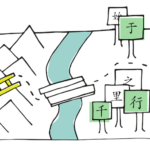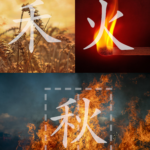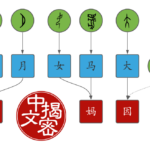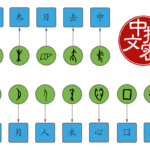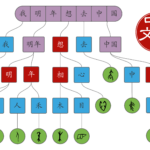Articles in the ‘Reading’ category Page 5
-
6 challenges students face when learning to read Chinese and how to overcome them
Learning to read Chinese comes with several challenges, some of them unique to Chinese. What are these challenges, what do they mean for you as a student and how can you overcome them?
Read → -
The building blocks of Chinese, part 4: Learning and remembering compound characters
The key to learning Chinese compound characters is to learn the building blocks and how they fit together, including both the function of each component and the structure of the compound. Add some clever memory techniques and you’ll be able to dramatically increase the speed and efficiency of your learning!
Read → -
The building blocks of Chinese, part 3: Compound characters
A vast majority of Chinese characters are compounds, and understanding how the components fit together and which function they have, will make learning and remembering characters a lot easier. This article explains the most important types of compounds you’ll encounter and how you can use that knowledge to learn characters more easily.
Read → -
The building blocks of Chinese, part 2: Basic characters, components and radicals
Most Chinese characters are compounds consisting of two or more components, but some components are in themselves compounds that can be further broken down. But how do you know where to stop? And how do you learn and remember the most basic building blocks?
Read → -
The building blocks of Chinese, part 1: Chinese characters and words in a nutshell
Learning to read and write Chinese is a daunting task, but the challenge becomes more manageable if you focus on learning the building blocks, learning how components form characters and how characters form words. This article is the first part in a series helping adult students make sens of Chinese characters.
Read → -
Chinese language logging, part 3: Tools and resources for keeping track of your learning
Logging you language learning can be very useful, and there are many tools and resources out there to help you, but which are the best and how do you use them?Logging you language learning can be very useful, and there are many tools and resources out there to help you, but which are the best and how do you use them?
Read → -
The benefits of using Wikipedia to look up words when learning Chinese
Wikipedia is an encyclopedia, not a dictionary, but did you know that it can be better than a dictionary for looking up words when learning Chinese?
Read → -
Lost in transcription: Saylaw, Ice Island and Aristotle
Names of people and places can be quite different in different languages, sometimes so different that it causes headaches for second language learners. Do you know the world’s best footballer, Saylaw? What about Yàlǐshìduōdé? Or are you lost in transcription too?
Read → -
Chinese language logging, part 1: Why and how to track your progress
How much time are you investing into learning Chinese? Or is it maybe better to talk about it using a unit other than time, such as how many books you’ve read? Are you reading more than you’re writing? Or is listening, speaking, reading and writing maybe the wrong labels to use?
Read → -
6 things in Chinese that are harder to learn than they seem
It’s hard to gauge the difficulty of something without having mastered it first. When something is easier than you think, that’s not very serious, but if you think something is much easier than it actually is, it can feel quite bad and decrease motivation. This article is about things that are harder than they seem when learning Chinese.
Read →
